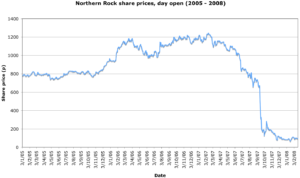Digital Advertising Trends 2024 – In the realm of marketing, digital advertising reigns supreme. With the advent of the internet, businesses have shifted their focus towards online platforms to reach their target audience effectively. Digital advertising encompasses various strategies and channels to promote products or services, ranging from social media ads to search engine marketing.

Current State of Digital Advertising
As we delve into 2024, it’s crucial to assess the existing landscape of digital advertising. The trends observed in 2023 provide valuable insights into the direction in which the industry is heading. From the dominance of video content to the rise of personalized ads, marketers have been navigating through a dynamic and ever-changing environment.
Anticipated Changes in 2024
Looking ahead, 2024 is poised to witness significant shifts in digital advertising strategies. Various factors, including technological advancements, consumer behavior, and regulatory changes, will influence the trends shaping the industry in the coming year.
Emerging Technologies in Digital Advertising
The integration of cutting-edge technologies is revolutionizing digital advertising. Artificial Intelligence (AI) and Machine Learning algorithms are enabling marketers to analyze vast amounts of data and deliver targeted ads with precision. Augmented Reality (AR) and Virtual Reality (VR) are providing immersive experiences, while Voice Search Optimization is becoming increasingly important in the era of smart assistants.
Personalization and User Experience
Personalization has become a cornerstone of effective digital advertising. By tailoring ads to individual preferences and behaviors, brands can enhance the user experience and foster deeper connections with their audience. From personalized recommendations to interactive ad formats, customization is key to standing out in a crowded digital landscape.
Content Marketing and Native Advertising
In the age of ad blockers and banner blindness, content marketing has emerged as a powerful tool for engaging consumers. Brands are leveraging storytelling and valuable content to attract and retain their target audience. Native advertising, seamlessly integrated into the user experience, offers a non-disruptive way to promote products or services across various platforms.
Video Advertising
Video continues to dominate the digital advertising space, capturing audiences’ attention like never before. Short-form videos on platforms like TikTok and Instagram reels are gaining popularity among younger demographics, while long-form video content on platforms like YouTube provides opportunities for in-depth storytelling and brand building.
Influencer Marketing
Influencer marketing has become a staple in many brands’ advertising strategies. Leveraging the reach and credibility of influencers, businesses can effectively tap into niche markets and connect with consumers on a personal level. Micro and Nano influencers, with smaller but highly engaged followings, are increasingly sought after for their authenticity and influence.
Mobile Advertising Trends
With the majority of internet users accessing content on mobile devices, mobile optimization is no longer optional but essential. Marketers are adopting a mobile-first approach, optimizing ad formats and targeting strategies for smaller screens. From responsive design to mobile apps, brands are prioritizing the mobile experience to reach consumers on the go.
Privacy Concerns and Regulation
Amid growing concerns about data privacy and online tracking, regulatory bodies are tightening their grip on digital advertising practices. The General Data Protection Regulation (GDPR) has set strict guidelines for collecting and processing personal data, forcing advertisers to prioritize transparency and user consent.
Metrics and Analytics
Data-driven decision-making has become indispensable in digital advertising. Marketers are leveraging advanced analytics tools and techniques to track and analyze campaign performance, measure ROI, and optimize advertising spend. From click-through rates to conversion metrics, actionable insights drive continuous improvement and innovation in digital marketing strategies.
Sustainability and Ethical Advertising
As consumers become more environmentally conscious, brands are under pressure to adopt sustainable practices and promote ethical values. From eco-friendly packaging to cause-related marketing campaigns, sustainability has become a key differentiator in brand messaging. Ethical considerations, such as diversity and inclusion, also play a crucial role in shaping consumers’ perceptions and purchasing decisions.
Ad Fraud Prevention
Ad fraud remains a persistent challenge in digital advertising, costing businesses billions of dollars annually. Marketers are implementing robust fraud detection technologies and verification processes to combat fraudulent activities such as click fraud and bot traffic. Transparency and accountability are essential in maintaining the integrity of ad campaigns and building trust with consumers.
Globalization and Localization
In an increasingly interconnected world, brands are expanding their reach through global advertising campaigns. However, cultural differences and regional nuances necessitate localization strategies to resonate with diverse audiences. Whether through language localization or culturally relevant content, tailoring ads to specific markets is essential for success in the global marketplace.
Conclusion
Digital advertising is undergoing a rapid transformation, driven by technological advancements, shifting consumer preferences, and regulatory changes. As we look towards 2024 and beyond, staying abreast of emerging trends and adopting innovative strategies will be paramount for brands seeking to thrive in the digital landscape.
FAQs
- What are the key trends driving digital advertising in 2024?
- Emerging technologies such as AI and AR, personalization, and mobile optimization are among the key trends shaping digital advertising in 2024.
- How important is data privacy in digital advertising?
- Data privacy is of utmost importance in digital advertising, as stricter regulations and growing consumer awareness highlight the need for transparency and ethical data practices.
- What role do influencers play in digital advertising?
- Influencers wield significant influence over consumer behavior, making influencer marketing a valuable strategy for brands looking to connect with their target audience authentically.
- How can brands combat ad fraud in digital advertising?
- Brands can combat ad fraud through the implementation of fraud detection technologies, verification processes, and transparent ad buying practices.
- Why is localization essential in global advertising campaigns?
- Localization is essential in global advertising campaigns to ensure that ads resonate with diverse audiences by addressing cultural differences and regional preferences.




